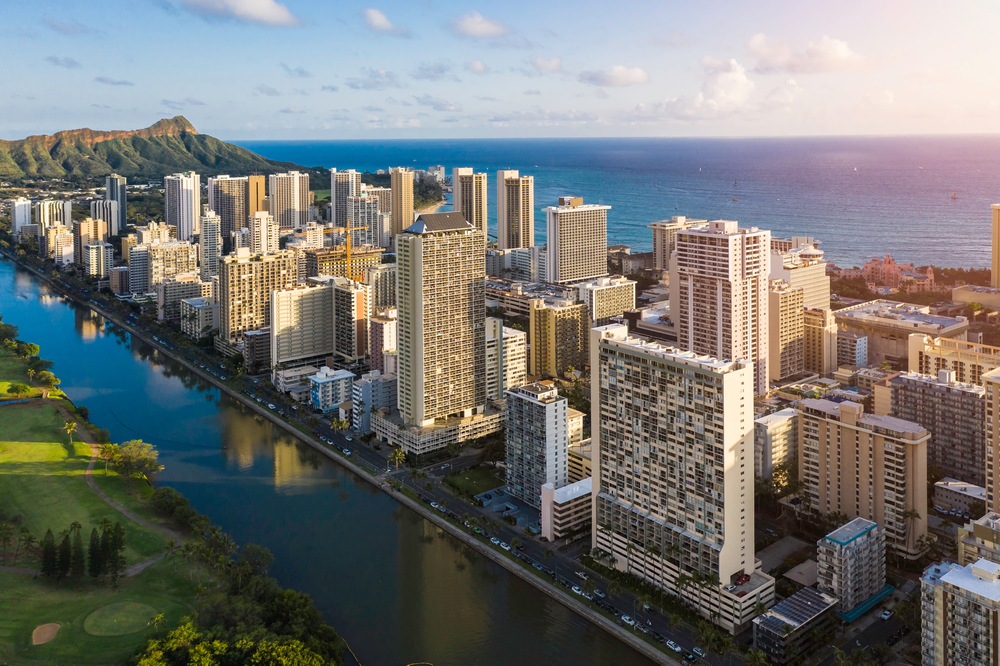HAWAIʻI TO RECEIVE $18M TO REDUCE ENERGY USE AND CARBON EMISSIONS FROM LARGE BUILDINGS
Update: April 7, 2025 — Pending release of federal funding.
HONOLULU, HI — The U.S. Department of Energy (DOE) has announced that Hawaiʻi is one of 19 state and local governments that will receive more than $240 million to adopt and implement the latest energy-efficient or innovative building codes. These improvements will help renters and commercial building operators save money on their utility bills. In Hawaiʻi, the funding will support the development and adoption of a Building Performance Standard (BPS) to improve the energy performance of the state’s largest commercial buildings (50,000 square feet and above) which currently account for approximately 80% of the state’s commercial electricity usage and about 78% of total commercial building emissions.
The expected outcomes of the Hawaiʻi BPS policy are an overall reduction in energy use and emissions from commercial buildings and lower operational energy costs for building owners and renters, with a commensurate increase in demand for good jobs in the skilled trades industry.
While tailored to increase energy efficiency in the commercial building sector, large high-rise multifamily buildings (100,000 square feet and above) will be eligible to apply in a second phase of the program.
A significant portion of the funding will be used to implement state and county capacity building and multi-year investments in skilled trades workforce development and education. Qualifying building types include hotels and resorts, food services, mercantile (strip malls), offices, education (schools), healthcare (outpatient) and warehouse and storage facilities. The implementation of the BPS is expected to create the demand for this clean energy workforce. In line with the Biden Administration’s Justice40 initiative, 40% of the grant funds will be allocated for a technical assistance program in low-and-moderate income communities and for the implementation of new trades apprenticeship and education programs.
“As Hawaiʻi continues to make strides in meeting its 100% renewable energy and decarbonization goals, it is critical that we continue to reduce our energy demand by being as energy efficient as possible. This policy will be key to our ability to meet our 2030 and 2045 goals,” said Hawaiʻi Chief Energy Officer Mark. B. Glick.
“Making our buildings more energy efficient will lower energy bills while also helping us fight the climate crisis,” said U.S. Senator Brian Schatz. “This new funding will help strengthen our workforce and enable people across Hawai‘i to reap the benefits of our transition to a cleaner future.”
The Hawaiʻi State Energy Office developed the proposal in partnership with the City of County of Honolulu’s Office of Climate Change, Sustainability and Resiliency, Kauaʻi County’s Office of Economic Development, Maui County’s Office of Economic Development, Hawaiʻi County’s Office of Sustainability, Climate, Equity, and Resilience, the University of Hawaiʻi at Mānoa’s School of Architecture and the Sea Grant College Program, as well as private sector consultants from both Hawaiʻi and other mainland states.
For a full list of projects, please click here. Selection for award negotiations is not a commitment by DOE to issue an award or provide funding. Before funding is issued, DOE and the applicants will undergo a negotiation process, and DOE may cancel negotiations and rescind the selection for any reason during that time.

